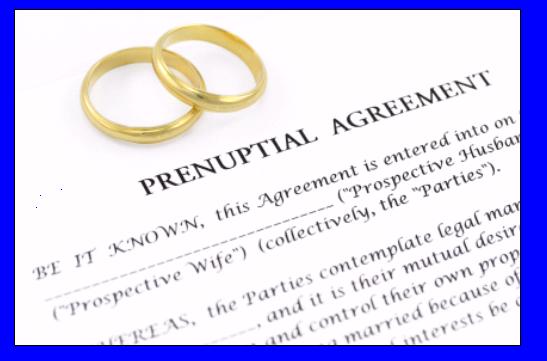In the contemporary world, the proliferation of social media platforms has revolutionized the way individuals communicate, share information, and maintain social connections. Platforms such as Facebook, Instagram, and Twitter have transcended geographical boundaries, enabling seamless communication and interaction across the globe. While these platforms have undoubtedly facilitated enhanced connectivity and interaction, they have also inadvertently introduced a myriad of challenges and complexities, particularly in the context of personal relationships. Among these, marital relationships stand out as a critical area significantly impacted by the advent and widespread use of social media.
The intersection of social media and marital relationships presents a multifaceted dynamic, encompassing various aspects ranging from communication and intimacy to deception and conflict. The virtual space of social media platforms allows individuals to curate and present selected aspects of their lives, often leading to discrepancies between online personas and real-life identities. This divergence can sow seeds of doubt, suspicion, and mistrust within marital relationships, undermining the foundation of honesty, transparency, and communication essential for the stability and longevity of marriage.
Furthermore, the extensive use of social media has introduced new dimensions of interaction and communication, reshaping the dynamics of marital relationships. The constant connectivity and accessibility can blur the boundaries between personal and digital spaces, leading to intrusion, distraction, and detachment within the marital relationship. The virtual interactions on social media platforms, while offering opportunities for social engagement and connection, can also inadvertently create avenues for deception, infidelity, and conflict, further exacerbating the challenges faced by married couples in the digital age.
Amidst these complexities, understanding the nuanced impact of social media on marital relationships is paramount. It is crucial to delve into the various dimensions, exploring the potential benefits and pitfalls, and examining the implications for communication, emotional intimacy, trust, and conflict resolution within the marital relationship. A comprehensive analysis of these aspects provides valuable insights, offering a holistic perspective on navigating the challenges and opportunities presented by social media within the context of marital relationships.
The Impact of Social Media on Marital Relationships
Positive Impacts
While social media often gets a bad rap for its potential to harm relationships, it’s important to acknowledge the ways it can positively contribute to marital dynamics:
- Enhanced Communication:
- Social media platforms provide couples with additional avenues for communication, allowing them to stay connected and engage in interaction regardless of physical distance.
- Shared Experiences:
- Couples can use social media to share experiences, interests, and activities, fostering a sense of companionship and shared identity.
- Support Networks:
- Social media enables couples to access broader support networks, including friends, family, and online communities that can offer advice, support, and resources for dealing with marital challenges.
Negative Impacts
Despite these potential benefits, the negative impacts of social media on marital relationships are significant and multifaceted:
- Deception and Dishonesty:
- The anonymity and freedom afforded by social media can facilitate deception and dishonesty, leading to breaches of trust within the marital relationship. Partners may create false personas, engage in online infidelity, or hide aspects of their online interactions, sowing seeds of doubt and mistrust.
- Distraction and Detachment:
- Excessive use of social media can lead to distraction and detachment within the marital relationship. Partners may find themselves spending more time on social media platforms than engaging in face-to-face interaction, leading to feelings of neglect, loneliness, and emotional distance.
- Conflict and Miscommunication:
- Social media can be a source of conflict and miscommunication within marital relationships. Misunderstandings, jealousy, and insecurity can arise from online interactions, exacerbating tensions and leading to conflicts.
Case Study Insights
The case study presented earlier offers valuable insights into the real-life impact of social media on marital relationships. The study, conducted with ten participants from Trabzon, Turkey, who divorced in 2013, highlights the role of deception on the internet in the dissolution of their marriages. The participants reported instances of their partners using false information and fake accounts on social media platforms, leading to feelings of betrayal, emotional turmoil, and ultimately, the decision to divorce.
The findings of the study categorize the impacts into two main areas: the ways divorced partners used the internet and the effects of their online messages and posts on familial relations. The most frequently encountered type of sharing by the partners on social networks was personation, leading to significant emotional and psychological distress for the participants. The concealment of marital status, uploading of false personal information, and engagement in online affairs negatively impacted the marriages, contributing to their eventual breakdown.
Emotional and Psychological Effects
The emotional and psychological effects of social media use on marital relationships are profound. Participants in the study reported feelings of neglect, disregard, emotional and behavioral cheating, violence, insecurity, loneliness, and psychological distress. These feelings were exacerbated by their partners’ deceptive and inappropriate use of social media, leading to the erosion of emotional bonds, trust, and commitment within the marital relationship.
Implications for Divorce
The implications of social media use for divorce are significant. The study highlights the role of social media in exacerbating marital conflicts, eroding trust and emotional intimacy, and contributing to the decision to divorce. Participants reported the negative and devastating effects on their marriage and personality in terms of emotional, behavioral, social, and psychological aspects, underscoring the critical need for awareness, understanding, and proactive management of social media use within marital relationships.
Legal Implications of Social Media on Divorce and Divorce Law
In the contemporary era, social media platforms have emerged as a significant facet in divorce proceedings, influencing various aspects from evidence to communication. The legal landscape is adapting to these changes, acknowledging the profound impact social media can have on divorce cases.
Evidence in Divorce Proceedings
In the realm of legal proceedings, social media content is increasingly being used as substantial evidence. Courts across the globe are recognizing and accepting social media posts, messages, and photographs as credible evidence to substantiate claims of infidelity, hidden assets, substance abuse, and other pertinent issues in divorce cases. A seemingly innocuous post flaunting extravagant purchases could serve as a contradiction to claims of financial inability during alimony or child support negotiations.
Impact on Child Custody Decisions
Social media holds a pivotal role in child custody disputes. Posts or messages reflecting irresponsible behavior, substance abuse, or any form of neglect or abuse can substantially influence a parent’s custody rights. Courts meticulously scrutinize social media activity to evaluate a parent’s character and lifestyle, ensuring the child’s welfare and safety in custody decisions.
Communication and Harassment
The effortless communication facilitated by social media platforms can inadvertently escalate conflicts during divorce proceedings. Ex-partners may exploit these platforms to harass or communicate inappropriately, leading to legal repercussions such as restraining orders or harassment charges. It is imperative for individuals undergoing divorce to maintain respectful and non-confrontational communication, even on online platforms.
Privacy Concerns
Privacy emerges as a paramount concern in the intersection of social media and divorce law. Individuals must exercise caution regarding their online activity, as seemingly private messages or posts can inadvertently become public, influencing divorce proceedings unpredictably. Legal experts often counsel clients to curtail social media use during divorce to avert unintended legal complications.
Strategies for Mitigating the Negative Impacts of Social Media on Marital Relationships
In light of the significant impact of social media on marital relationships, it is crucial for couples to adopt strategies to mitigate potential harm and enhance the positive aspects of social media interaction.
Open Communication:
- Set Boundaries:
- Couples should have open discussions about their social media use, setting clear boundaries and expectations to prevent misunderstandings and conflicts.
- Transparency:
- Transparency in online activities can help build trust and prevent the feelings of betrayal and deception that can arise from secretive online behavior.
Digital Detox:
- Scheduled Unplugging:
- Regularly scheduled periods of unplugging from social media and digital devices can help couples reconnect, improve communication, and strengthen their relationship.
- Mindful Use:
- Encouraging mindful and intentional use of social media can prevent excessive use and ensure that online activities do not detract from face-to-face interactions and relationship-building activities.
Professional Guidance:
- Counseling:
- Couples facing challenges related to social media use can seek counseling or therapy to address underlying issues, improve communication, and develop healthier online habits.
- Educational Programs:
- Participating in educational programs or workshops can provide couples with insights, tools, and strategies for navigating the complexities of social media use within their relationship.
Conclusion: Navigating the Impact of Social Media on Marital Relationships
In conclusion, while social media offers numerous opportunities for connection and communication, its impact on marital relationships is multifaceted and significant. The insights from the case study highlight the real-life implications of social media use, underscoring the potential for deception, conflict, emotional distress, and divorce. The strategies outlined above offer practical approaches for couples to navigate the digital landscape, ensuring that their online activities contribute positively to their relationship rather than causing harm.
The importance of open communication, transparency, mindful use of social media, and seeking professional guidance cannot be overstated. As the digital world continues to evolve, couples must remain proactive, informed, and engaged in ensuring the health and longevity of their relationships in the face of these online challenges.
By understanding the potential risks and implementing effective strategies, couples can enjoy the benefits of social media while safeguarding their relationships against potential harm, ensuring a balanced and harmonious union in the digital age.
References:
The Effect of Social Networking on the Divorce Process
Social Media and Divorce Case Study of Dutse L.G.A. Jigawa State




